Goldener Zirkel SS 21
Posted on January 26, 2022 by Oliver Kasper ‐ 3 min read

In the winter semester 2021/22, we, the mathematics student council, will once again award outstanding teaching in the past semester. We would like to announce the awards in the three categories Best Introductory Course, Best Advanced Course and Best Exercise Coordination:
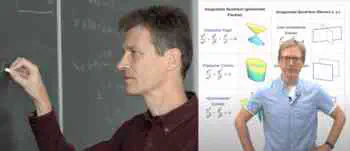 In the category Best Introductory Course we want to congratulate Prof. Kemper and Dr. Reimers with the lecture Lineare Algebra 2 (MA0005) for their first place. The two created a “very structured and comprehensible” course that provided “well-founded knowledge for a wide range of applications”. In addition, their “humorous manner” made people “enthusiastic about the subject” and the blackboard writing in the lecture provided a pleasant “change from the usual transcript on the tablet”.
In the category Best Introductory Course we want to congratulate Prof. Kemper and Dr. Reimers with the lecture Lineare Algebra 2 (MA0005) for their first place. The two created a “very structured and comprehensible” course that provided “well-founded knowledge for a wide range of applications”. In addition, their “humorous manner” made people “enthusiastic about the subject” and the blackboard writing in the lecture provided a pleasant “change from the usual transcript on the tablet”.
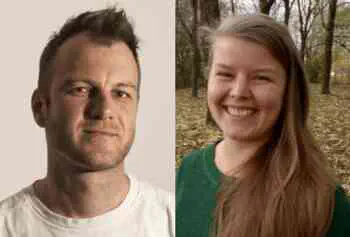 In Diskrete Strukturen (MA0005), Prof. Weltge and Ms. Seidel impressed their students with “fascinating examples”, “illustrative explanations” combined with their “contagious enthusiasm and excitement” about the subject. In addition, the “very open”, " likable" and “personal support” in lectures and various exercise formats answered any open questions.
In Diskrete Strukturen (MA0005), Prof. Weltge and Ms. Seidel impressed their students with “fascinating examples”, “illustrative explanations” combined with their “contagious enthusiasm and excitement” about the subject. In addition, the “very open”, " likable" and “personal support” in lectures and various exercise formats answered any open questions.
 ] Third place goes to Prof. Richter-Gebert, Prof. Hoffmann, Dr. Werner and Ms. Polke for the lecture Geometrie (MA2011). The “ingenious lecture videos” were “very illustrative” and “animated in a visually appealing way”, the “super good” sample solutions were worked out “in great detail” and overall the whole course was rounded off by thrilling central tutorials. In addition, the team was seemingly “always available” for questions - “sometimes even [after] 10 o’clock in the evening”.
] Third place goes to Prof. Richter-Gebert, Prof. Hoffmann, Dr. Werner and Ms. Polke for the lecture Geometrie (MA2011). The “ingenious lecture videos” were “very illustrative” and “animated in a visually appealing way”, the “super good” sample solutions were worked out “in great detail” and overall the whole course was rounded off by thrilling central tutorials. In addition, the team was seemingly “always available” for questions - “sometimes even [after] 10 o’clock in the evening”.
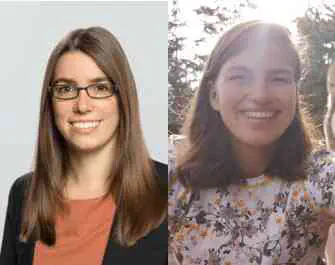 In the category Best Advanced Course, we would like to award Prof. Scheimbauer and Ms. Karlsson first place for their course Bordisms and Topological Field Theories (MA5133). With quizzes, additional voluntary talks held by students and various teaching formats, the course was very “creative, varied and interactive”. The contents were always conveyed in a “comprehensible, clear” and “well structured” manner and any questions and requests were addressed in a way that “felt [like your] usual pre-Covid classroom”.
In the category Best Advanced Course, we would like to award Prof. Scheimbauer and Ms. Karlsson first place for their course Bordisms and Topological Field Theories (MA5133). With quizzes, additional voluntary talks held by students and various teaching formats, the course was very “creative, varied and interactive”. The contents were always conveyed in a “comprehensible, clear” and “well structured” manner and any questions and requests were addressed in a way that “felt [like your] usual pre-Covid classroom”.
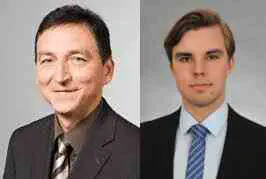 We congratulate Prof. Zagst and Mr. Sloot on their second place with the lecture Portfolio Analysis (MA4706). With “fascinating contents”, “clear explanations” and online Quizzes during the lecture, they were “able to motivate all [their students]” and “keep [them] interested in the subject”. On top of that they engaged with their students in frequent, interactive “discussion rounds” and were always open for questions.
We congratulate Prof. Zagst and Mr. Sloot on their second place with the lecture Portfolio Analysis (MA4706). With “fascinating contents”, “clear explanations” and online Quizzes during the lecture, they were “able to motivate all [their students]” and “keep [them] interested in the subject”. On top of that they engaged with their students in frequent, interactive “discussion rounds” and were always open for questions.
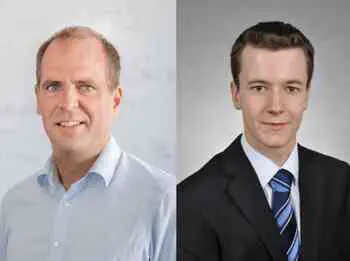 For the course Insurance Mathematics 2 (MA3406), Prof. Scherer and Dr. Wahl won third place. Here they were able to score with interesting “historical examples”, exciting insights into the current work regulations, “interactive mini-quizzes” during the lecture, as well as “excellent exercises” and “detailed sample solutions”.
For the course Insurance Mathematics 2 (MA3406), Prof. Scherer and Dr. Wahl won third place. Here they were able to score with interesting “historical examples”, exciting insights into the current work regulations, “interactive mini-quizzes” during the lecture, as well as “excellent exercises” and “detailed sample solutions”.
We would also like to honour the course Probability on Graphs (MA4406) by Prof. Gantert and Mr. Bäumler.
 In the category Best Exercise Coordination, we would like to award first place to Mr. Forster for the course PDE2 – Nonlinear Partial Differential Equations (MA5077). In his “very interactive” exercises, he was always “extremely committed”, “enthusiastic and competent”, stimulated joint discussions and thus fulfilled all expectations of “a tutorial in the […] pandemic”. In addition, there were also very “detailed sample solutions” and weekly overviews in which he connected the current topics with other areas and pointed out analogues in familiar topics.
In the category Best Exercise Coordination, we would like to award first place to Mr. Forster for the course PDE2 – Nonlinear Partial Differential Equations (MA5077). In his “very interactive” exercises, he was always “extremely committed”, “enthusiastic and competent”, stimulated joint discussions and thus fulfilled all expectations of “a tutorial in the […] pandemic”. In addition, there were also very “detailed sample solutions” and weekly overviews in which he connected the current topics with other areas and pointed out analogues in familiar topics.
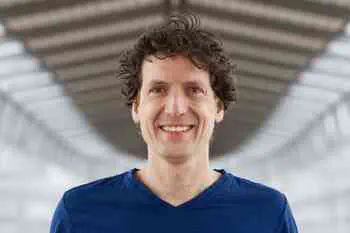 In the course Einführung in die Optimierung (MA2012), Dr. Lindemann assigned “well thought-out exercises that really contribute to the understanding of the contents of the course” and “explain concepts clearly […]”. These were supplemented by “outstanding Moodle quizzes” and programming exercises that illustrated “the areas of application of the lecture topics”.
In the course Einführung in die Optimierung (MA2012), Dr. Lindemann assigned “well thought-out exercises that really contribute to the understanding of the contents of the course” and “explain concepts clearly […]”. These were supplemented by “outstanding Moodle quizzes” and programming exercises that illustrated “the areas of application of the lecture topics”.
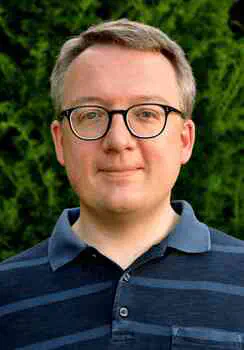 Third place goes to Dr. Himstedt for his “commitment and [his] motivation” in Algebra (MA2010). He was able to convince his students with “helpful revisions” and a great exercise concept, which included time for interactive work in small groups as well as for discussing solutions and answering all questions in detail.
Third place goes to Dr. Himstedt for his “commitment and [his] motivation” in Algebra (MA2010). He was able to convince his students with “helpful revisions” and a great exercise concept, which included time for interactive work in small groups as well as for discussing solutions and answering all questions in detail.

